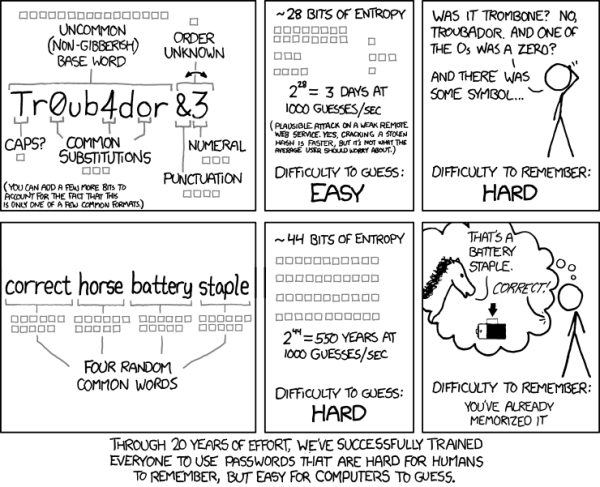Last year, I shared an e-mail my son sent me about security.
With the Equifax breach, I was reminded of something else he told me.
"It's not whether or not you've been hacked … because you have … it's whether you've been targeted."
As data becomes more valuable, and IP more coveted, security concerns grow, but the biggest security concern isn't where you would expect it to be.
When people think of hacking they often think of a Distributed Denial Of Service (DDOS) attack or the media representation of people breaking into your system in a heist.
In reality, the greatest weakness is people, it's you … the user. It's the user that turns off automatic patch updating. It's the user that uses thumb drives. It's the user that reuses the same passwords.
 via xkcd
via xkcd
Whether it's malicious or unintentional, humans are often the biggest security weakness.
As proof, watch the first few minutes of the video below to watch a social engineer find out this man's email and gain access to his cell phone account. She locks him out of his account at the same time.
I started the video at the interesting part so you don't have to search for it.
As for passwords … I recommend not knowing them. You can't disclose what you don't know. Consequently, I recommend a password manager like LastPass or 1Password.
How many cyber security measures you take comes down to two simple questions … First, how much pain and hassle are you willing to deal with to protect your data? And, second, how much pain is a hacker willing to go through to get to your data?
It doesn't make sense to put all your data in a lockbox computer that never connects to a network … nevertheless, it might be worth it to go to that extreme for pieces of your data.
Think about what the data is worth to you, or someone else, and protect it accordingly.

Leave a Reply